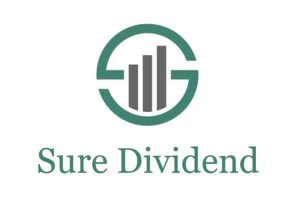Expert insights and understanding the latest investment trends are instrumental to successfully navigating the financial world. Let’s delve into the 8 Best Investment Newsletters of 2024.

In the ever-evolving world of investing, staying informed is the key to making sound financial decisions. One of the most resourceful tools to keep investors on top of market trends, financial news, and insightful analysis are investment newsletters. However, with a vast array of options available, deciding on the right one can seem overwhelming.
In this post, we’ve distilled down some of the top investment newsletters that are worth your time and subscription.
Best Investment Newsletters
Staying informed is essential in the fast-paced world of investing. Investment newsletters are a valuable tool, offering up-to-date market trends, financial news, and insightful analysis. But with so many options, how do you choose the right one? We’ve compiled a list of the top seven investment newsletters, detailing their pros, cons, and who they best serve to help you make the right choice.
1. Sure Dividend

- Why it Stands Out: Sure Dividend is a paid newsletter service that specializes in dividend stocks and income investing. In contrast to popular newsletters like Motley Fool Stock Advisor, Sure Dividend prioritizes dividend security, dividend growth, and total return over disruptive growth stocks.
- Best For: Income-oriented investors
- Pros: Analysis done by a real research team, Over 800 securities covered every quarter
- Price: Starts at $199/year
- Current Promotions: 7 Day Free Trial
Learn more at SureDividend.
2. Steady Options

- Why it Stands Out: Recognized as one of the top options trading blogs, SteadyOptions.com aims to help individual investors achieve consistent profits through well-researched options strategies. The platform provides various subscription-based services, granting subscribers access to specific sections of the forum tailored to their needs, whether they are active traders, long-term investors, or focused on particular trading strategies.
- Best For: Traders who are interested in learning about options trading.
- Pros: Strong historic returns (122.7% CAGR since inception), active trading forum, wide range of materials
- Cons: The volume of information can be overwhelming for beginners.
- Price: Starts at $109/month
- Current Promotions: None listed
Checkout SteadyOptions.com
3. Morningstar Direct

Morningstar is renowned for its extensive research on mutual funds, and its newsletter, Morningstar Direct, is no exception. It provides in-depth fund analysis, portfolio management insights, and comprehensive financial data. For investors focusing on mutual funds and ETFs, this is an invaluable resource.
Try MornIngstar TODAY- Why it Stands Out: Robust portfolio management tools offer investors the ability to track performance, conduct risk analysis, and create detailed reports, making it a versatile tool for effective portfolio management.
- Best For: Investors focusing on mutual funds and ETFs and those who appreciate detailed analysis.
- Pros: In-depth fund analysis, robust portfolio management tools, and comprehensive financial data.
- Cons: Might be too complex for beginners; some premium content requires a subscription.
- Price: $34.95 per month, $249 annually (41% savings)
- Current Promotions: None listed
Or read our complete Morningstar Review.
4. The Motley Fool Stock Advisor
The Motley Fool made a name for itself as a trusted source of investment advice. Their newsletter, the Stock Advisor, offers monthly stock recommendations, in-depth reports, and ongoing coverage of major investment trends. This paid newsletter is particularly suited for individual investors seeking guidance on stock picks and investment strategies.
You might also be interested in: Seeking Alpha vs. Motley Fool Review.

- Why it Stands Out: The Motley Fool Stock Advisor shines with its specific stock recommendations, backed by detailed analysis and a strong track record of performance. This valuable feature aids investors of all levels in identifying potential investment opportunities in the stock market.
- Best For: Both novice and experienced investors who appreciate guidance on stock picks and investment strategies
- Pros: Provides specific stock recommendations, offers in-depth reports, and a solid track record of performance.
- Cons: Requires a subscription; not all recommended stocks may suit every investor.
- Price: $199/year
- Current Promotions: None listed
Read our complete Motley Fool Review.
5. Seeking Alpha
Known for its crowd-sourced content from investors and industry experts, Seeking Alpha offers a unique take on investment newsletters. It covers a vast range of topics, including stocks, ETFs, commodities, and more. With both free content and premium subscriptions available, Seeking Alpha provides detailed analysis and a platform for discussion that caters to both novice and experienced investors.

- Why it Stands Out Seeking Alpha’s unique crowd-sourced content model allows for an array of analysis and opinions from different investors and industry experts, providing a comprehensive view of market trends and investment options.
- Best For: Investors looking for diverse perspectives and those interested in a broad spectrum of investment types.
- Pros: Wide range of topics covered, content is crowd-sourced from a variety of investors and industry experts.
- Cons: Premium content requires a subscription; quality of analysis may vary due to crowd-sourced nature.
- Price: $239/year
- Current Promotions: $4.95 for the first month
Find our more in our Seeking Alpha Review.
6. Investor’s Business Daily
Investor’s Business Daily provides a wealth of information on stocks, mutual funds, and ETFs. With its emphasis on helping investors develop their own market-timing strategy, it’s particularly suited for active traders and hands-on investors. The newsletter includes daily stock lists, market trend analysis, and informative articles.

- Why it Stands Out: Investor’s Business Daily distinguishes itself with its daily stock lists and market trend analysis, providing investors with up-to-date opportunities and insights. Furthermore, it places a strong emphasis on market-timing strategies, offering tools and advice that can be particularly beneficial for active traders and hands-on investors.
- Best For: Investors looking for diverse perspectives and those interested in a broad spectrum of investment types.
- Pros: Wide range of topics covered, content is crowd-sourced from a variety of investors and industry experts.
- Cons: Premium content requires a subscription; quality of analysis may vary due to its crowd-sourced nature.
- Price: $34.95/month (no obligation)
- Current Promotions: 2 months for $20
7. Action Alerts PLUS by TheStreet.com
Overall Rating:
Action Alerts PLUS stands out for its transparency, giving subscribers full access to its portfolio and real-time trade alerts. The service prioritizes education, explaining the reasoning behind each decision to help subscribers understand investment strategies.
- Why it Stands Out: Action Alerts PLUS stands out for its transparency, giving subscribers full access to its portfolio and real-time trade alerts. The service prioritizes education, explaining the reasoning behind each decision to help subscribers understand investment strategies. It provides actionable investment advice, detailed recommendations on what to buy, at what price, and when to sell. Subscribers gain from monthly members-only calls, fostering learning and direct communication with the team. Lastly, it offers comprehensive market analyses and weekly roundups of market activity, changes in the portfolio, and future outlooks, keeping subscribers well-informed and prepared.
- Best For: Investors seeking real-time alerts on trades and insights into market trends.
- Pros: Strong Emphasis on Investor Education, 14 Day Free Trial, Easy-to-use Interface
- Cons: Oriented towards short-term trading, Requires Active Management
- Price: Starts at $16.67/mo
- Current Promotions: Free for 14 Days
8. Kiplinger
‘Kiplinger’s Personal Finance’ is known for its broad coverage of personal finance topics. The newsletter provides advice on saving, investing, taxes, insurance, retirement, and more. The investing section covers market trends, advice on investing in stocks, bonds, mutual funds, and ETFs, along with actionable investment strategies.

- Why it Stands Out: Kiplinger shines with its broad yet practical advice on all aspects of personal finance, not just investments, making it a comprehensive guide for overall financial planning. Its user-friendly content on saving, investing, retirement planning, and tax strategies makes it particularly helpful for novice investors and individuals planning for retirement.
- Best For: Those looking for comprehensive personal finance advice in addition to investment insights. Particularly helpful for novice investors and individuals planning for retirement.
- Pros: Kiplinger offers a wide range of advice on all aspects of personal finance, not just investments. It’s known for its practical advice on saving, investing, retirement planning, and tax strategies. Its coverage is easily accessible, even for beginners.
- Cons: While it offers broad coverage, it may lack the depth of investment-specific analysis found in other newsletters. Some premium content requires a subscription.
- Price: $95.40/year
- Current Promotions: $29.95 for the 1st year.
9. Zacks Investment Research
Zacks Investment Research is a reputable financial research firm known for its extensive data and in-depth analysis. Zacks provides a myriad of services, including stock recommendations, investment research, portfolio management tools, and financial news and commentary.

- Why it Stands Out: Zacks Investment Research is renowned for its proprietary quantitative model, which offers unique insights by ranking stocks based on factors such as earnings estimate revisions and earnings surprises. Additionally, its intuitive stock rating system provides a clear, easy-to-understand assessment of potential investments, aiding investors in making informed decisions.
- Best For: Zacks Investment Research is best suited for active investors who are interested in in-depth quantitative analysis and short-term trading opportunities.
- Pros: Known for its proprietary quantitative model and stock ratings. Offers a comprehensive range of services and educational resources.
- Cons: The volume of information can be overwhelming for beginners. Many features require a premium subscription, and the focus is on short-term strategies.
- Price: $249/year
- Current Promotions: First month free.
Read our complete Zacks Investment Research Review
Frequently Asked Questions
What is an Investing Newsletter?
An investing newsletter is a publication that provides subscribers with financial and investment advice, news, insights, and strategies. These newsletters are typically created by financial professionals, research firms, or investment companies.
Investing newsletters cover a range of topics, including stock recommendations, market analysis, economic trends, portfolio strategies, and more. Some are broad in scope, covering a wide array of investments like stocks, bonds, mutual funds, real estate, and commodities. Others may focus on specific areas such as technology stocks, dividend stocks, or index fund investing.
The primary goal of an investment newsletter is to help subscribers make informed decisions about their investments. This could involve tips for buying and selling stocks, strategies for asset allocation, or analysis of recent market developments.
Are Investing Newsletters Worth It?
If you are an active trader looking to get an edge on the competition, then, yes, stock newsletters are worth the investment.
The Bottom Line
Staying updated is crucial in the dynamic world of investing. Whether you are a newbie or a seasoned investor, these investment newsletters offer valuable insights to help you make informed decisions and stay ahead of the curve.
Remember, the best investment newsletter for you will align with your investment strategy, financial goals, and the level of engagement you want with your investments.
So, choose wisely, and happy investing!


